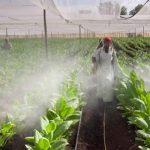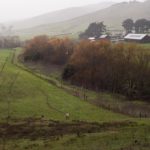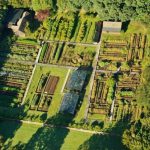“Pesticides cause a multitude of adverse effects on humans. However, they are especially harmful to children.”
Pesticides cause a multitude of adverse effects on humans. However, they are especially harmful to children. They may have something to do with the mass-shootings in schools all over America because some of them are neurotoxins. This means they affect and damage the central nervous system and the brain – of all animals, including humans.
Warren Porter, professor emeritus of zoology at the University of Wisconsin, conducted experiments with ground water – water drawn from the ground of farms with typical levels of pesticides and fertilizers. He chose farm water contaminated with the insecticide aldicarb, the herbicide atrazine, and nitrogen fertilizer. He tested that mixture on white mice and deer mice.
The concentrations of the fertilizer with each of the pesticides (aldicarb and atrazine) in the ground water were of the order of magnitude the Environmental Protection Agency says the chemicals cause “no unreasonable harm to man and the environment.” In other words, Porter put to the ultimate test the assurances of EPA and the chemical industry about the toxins EPA registers (approves) – that they are safe and farmers may spray on crops Americans eat.
Porter discovered the mixture of common ground water and farm chemicals had detrimental effects on the animals’ nervous, immune, and endocrine systems. The mice became aggressive and had problems with their thyroid hormones. Their immune system was also compromised in its ability to make antibodies against foreign proteins.
Organic food means food without farm sprays, sludge, radiation, and genetic engineering. This healthy food is also political food: helping us to fight pollution and control by the agrochemical-industrial-political complex.
https://www.commondreams.org/views/2018/04/14/pesticides-are-making-children-aggressive






